- Home
- Blog
- Laser Skin Treatment
- Red cheeks with many “broken capillaries” – what can you do?
Red cheeks with many “broken capillaries” – what can you do?
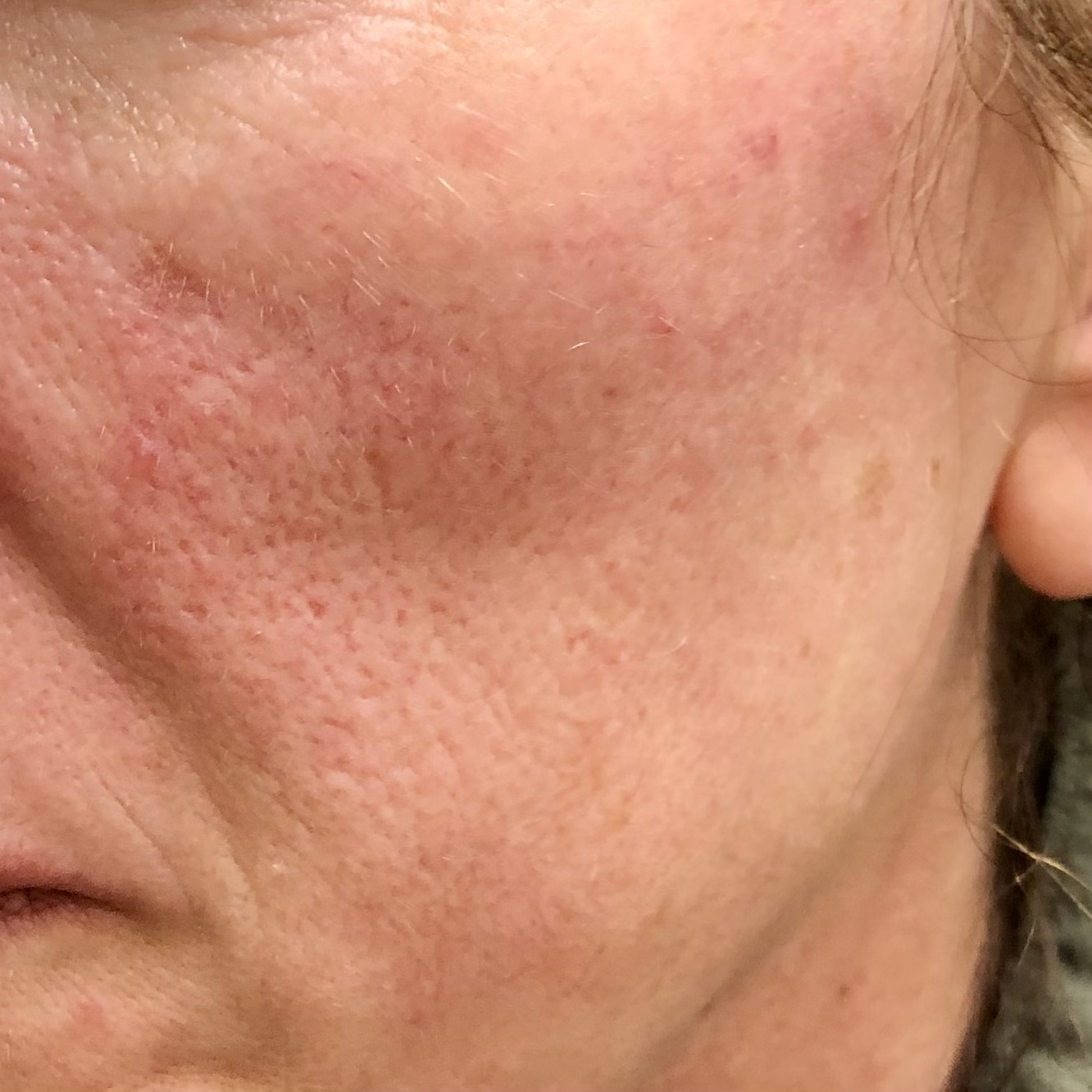 One of the most common concerns that bring Boston patients to SkinCare Physicians for advice about their appearance is the constant presence of red cheeks or dilated blood vessels on their cheeks and/or nose. Patients relate that the color change is always there, and may be accentuated by stress, drinking alcohol, getting overheated or eating spicy food. Those affected are more often women than men, are usually quite fair skinned and of Celtic ethnicity, and they often have had a lot of sun exposure as they were growing up. Some note that they flush or blush easily. Dr. Kenneth Arndt offers a few recommendations for what you can do if you are bothered by “broken capillaries” on your face.
One of the most common concerns that bring Boston patients to SkinCare Physicians for advice about their appearance is the constant presence of red cheeks or dilated blood vessels on their cheeks and/or nose. Patients relate that the color change is always there, and may be accentuated by stress, drinking alcohol, getting overheated or eating spicy food. Those affected are more often women than men, are usually quite fair skinned and of Celtic ethnicity, and they often have had a lot of sun exposure as they were growing up. Some note that they flush or blush easily. Dr. Kenneth Arndt offers a few recommendations for what you can do if you are bothered by “broken capillaries” on your face.
Step 1 – Learn to differentiate between rosacea and photodamage
Before figuring out what to do it’s important to identify the problem. There are two conditions that have a very similar appearance and may be difficult to differentiate one from the other. The problem might be rosacea, or simply the result of cumulative photodamage from years of past exposure to the sun.
What is rosacea:
Rosacea is a common skin condition which can run in families and usually doesn’t appear before the age of 30. Easy blushing is often noted. The skin may be more easily irritated and may burn or sting spontaneously or after washing. Acne-like breakouts may appear and sometimes the eyes feel irritated or be bloodshot. Rosacea redness primarily affects the central face, although the chin, nose and forehead may be involved. There may be networks of very small vessels in the background. Because rosacea develops gradually, initially coming and going, people often tend not to recognize its presence.
What is photodamage:
Photodamage is the result of chronic exposure to the sun of skin unprotected by sunscreens. The accumulation of damage from the sun starts early in life, with sun tanning and time spent at the beach or pool. Even in the Northeast, with its cold and harsh winters, there is plenty of sun in the summer and lots of people avidly seek outdoor exposure. With time, cumulative photodamage can lead to the development of dilated vessels on the face, wrinkles, roughness, and uneven skin texture. Precancerous lesions such as actinic keratosis, and skin cancers, may also arise from photodamaged skin.
How rosacea differs from photodamage:
The primary feature of red cheeks which differentiates rosacea from photodamage is the prominent flushing found in rosacea patients. Those with photodamage often display other changes seen in sun damaged skin such as irregular texture and freckling.
Step 2 – Don’t let red cheeks untreated
Fortunately, there are quite effective treatments for both causes of redness.
Proven laser treatments for both red cheek conditions:
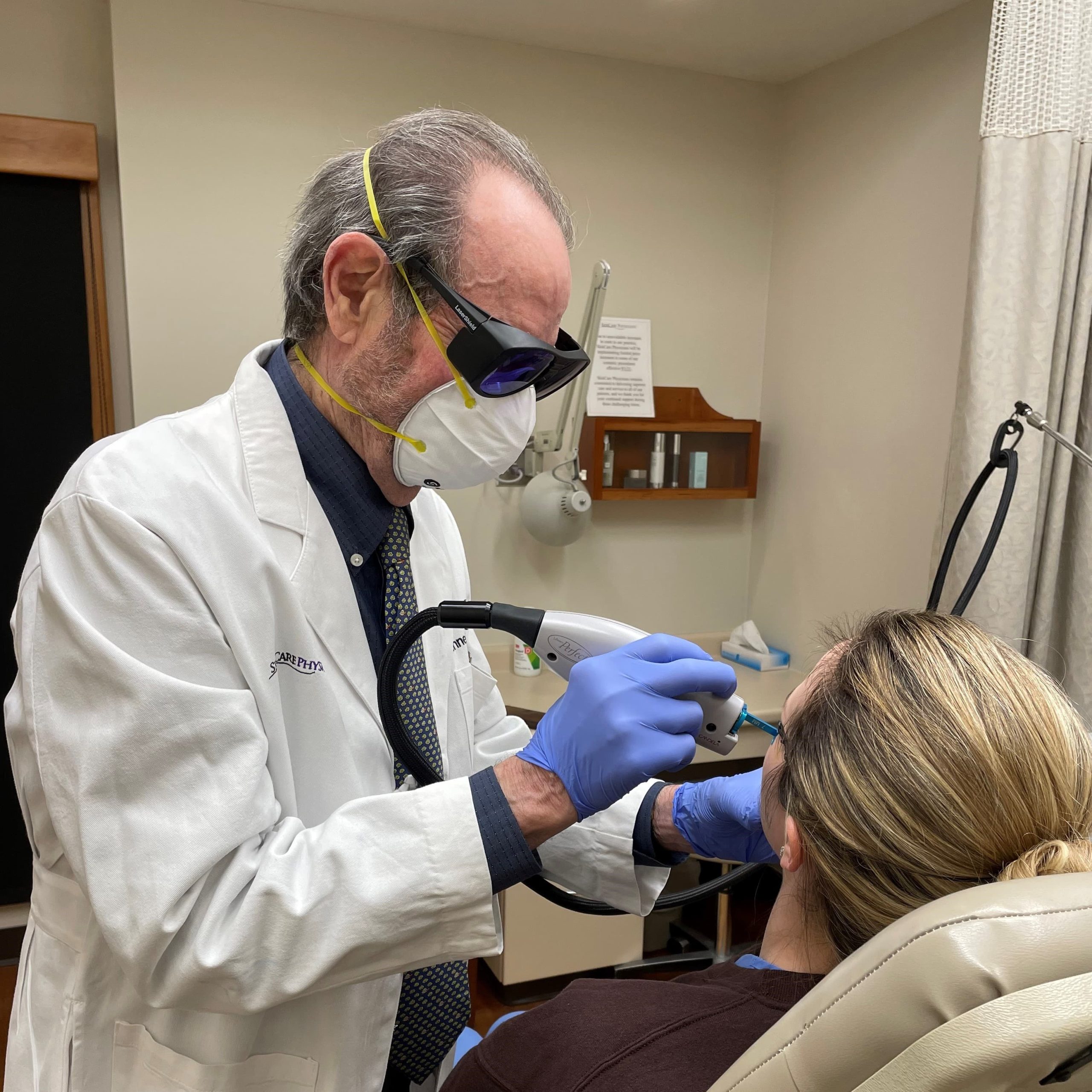 The dilated blood vessels, which are the primary cause of the red appearance, can be diminished or eliminated using several types of lasers or other energy devices.
The dilated blood vessels, which are the primary cause of the red appearance, can be diminished or eliminated using several types of lasers or other energy devices.
These procedures can selectively damage or destroy blood vessels within the dermis leaving the skin and surrounding structures intact and undamaged. When a short burst of yellow or green light from a laser is absorbed by the red pigment within blood vessels, the light energy turns into heat, which then damages the lining of the vessels and leads to their destruction. The heat from this treatment extends to the area surrounding the vessels which then promotes new collagen formation leading to slightly tighter and more radiant skin. So one or several exposures to the yellow light from a pulsed dye laser, or green light from a different laser would be very effective in eliminating redness from the affected areas.
There are other effective treatments that work for the variety of changes found in both rosacea and photodamage.
Other treatments for rosacea:
Depending on the rosacea issues, use of topical medications or oral antibiotics can be very effective. One of these topical medications causes vasoconstriction and can decrease the degree of rosacea redness overtime, but the redness returns when use of the cream is discontinued. If this cream is used concomitantly with laser treatments, their combined effects are synergistic and blood vessels may be decreased more effectively. Decrease in stress, diminished use of alcohol and exposure to spicy foods, avoiding irritating topicals and cosmetics, and avoiding intense sun exposure can also be useful.
Other treatments for photodamaged skin:
The changes associated with photodamage can be addressed in many ways. Textural changes respond to the application of topical retinoids and respond substantially to fractional laser resurfacing with lasers such as the Fraxel. Chemical peels also can bring about considerable improvement. Photorejuvenation using intense pulsed light (IPL) is effective, as is photodynamic therapy using topical photosensitizers along with light exposure.
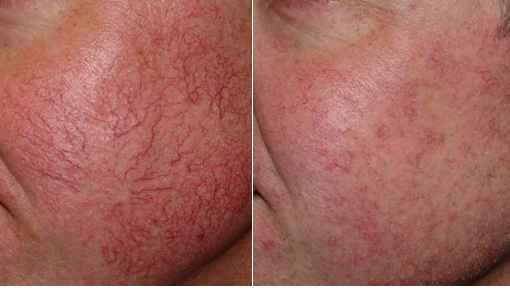
Before and after IPL treatments
Step 3: Prevent red cheeks from appearing
None of the above approaches is as effective as preventing the dilatation of blood vessels which are causing the red face in the first place. The mantra repeated to all patients whom we see is: be compulsive with the use of sunscreens and topical retinoids such as tretinoin, and wear a wide brimmed hat when out in the sun. The use of photoprotection starting early in life will prevent the evolution of photodamage and the red cheeks that may accompany it, and will minimize the redness of the red face associated with rosacea.
YOU MAY ALSO LIKE:
Tips for controlling rosacea
Could I be one of the many Americans who have Rosacea?

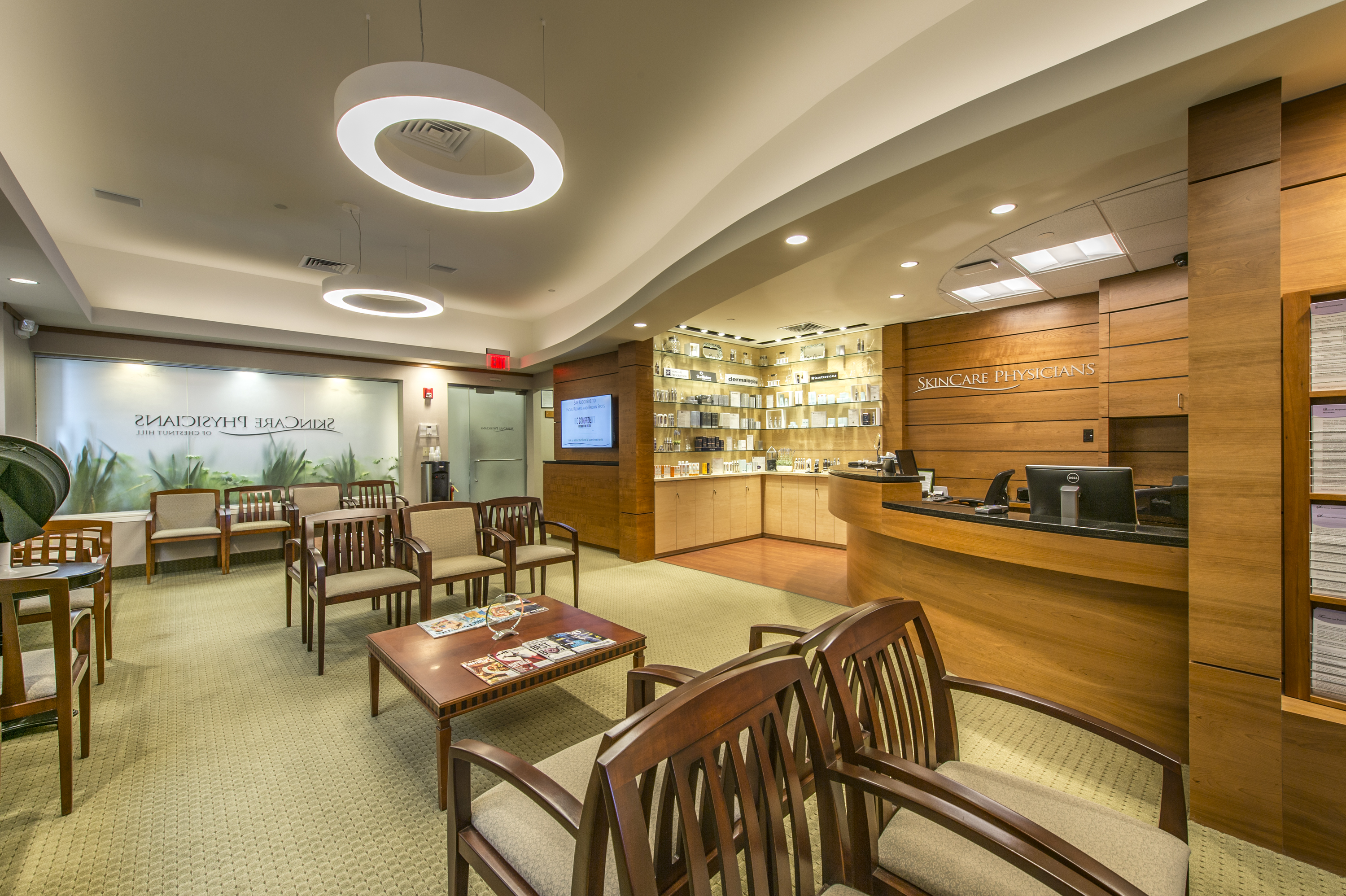
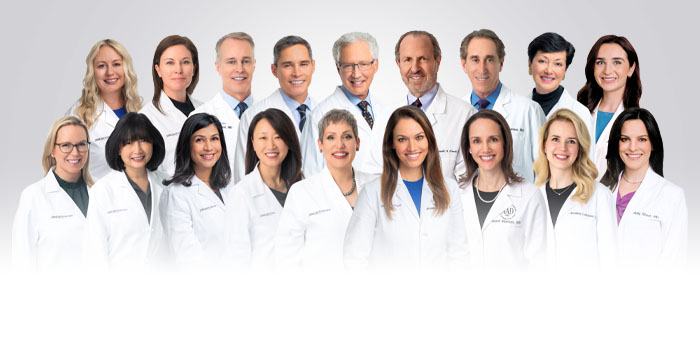
Leave a Reply